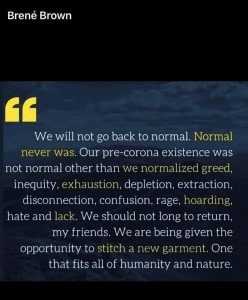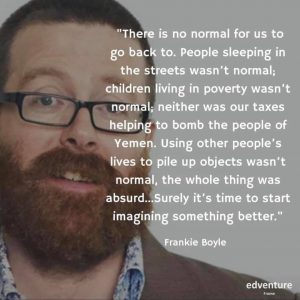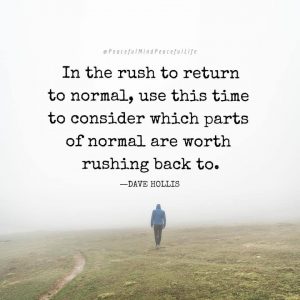Firstly I want to say clearly THANKYOU to the church leaders who have courageously tried to keep serving their communities throughout this time, through moving content on line etc (as well the practical acts of service such as food banks etc). Many of whom find technology difficult and unnatural, you are doing a great job and this post isn’t criticising what you are doing but I am trying reflect on the context we are now in and how else we might respond. I also do NOT want this come across that Im saying in any way that corona has been positive in giving us a massive opportunity for evangelism that we need to capitalise on, but I am asking like we should always be asking how can the church speak and act faithfully in the context and culture we find ourselves in.
In this post I want to specifically explore how we might respond to the the fact that several churches are observing increased numbers of people dropping into services being held on line, and how we might engage more fully with these “new” people* by unpacking a little the notion of “broadcast”. I want to think about the place and importance of participation in learning and use Mark Searle’s and Friere’s work to raise questions about broadcast liturgy and why simply moving services on line might be missing some opportunities to engage these “new” people.
Often the increase in new people engaging with services on line is seen in churches with strong community engagement before and during corona, although it seems that there is some evidence that these initial numbers are starting to wane. One of the things happening throughout the last few months has been a recovery of the importance of local as people serve their neighbours, stay home, walk locally etc. For many people, churches online services have provided some space to help people connect beyond their immediate neighbour but remain rooted in the local. They might know of the minister, or have an echo of a memory of the church in the town or area and so tune in online. One minister commented how many people from the wider village had joined in easter services as they valued the simple opportunity to gather in a sense of community.
In real life church services are usually delivered in “broadcast” mode, whilst some may argue that the liturgical responses, singing or shared readings etc are participatory, I would tend to disagree. Yes to an extent there is participation but questions abound about how participatory this really is particularly if you have understanding of participation rooted in in youth and community development and I doubt many church services would get beyond rung 3 of Harts Ladder . Whilst in established congregations there maybe a higher degree of active real participation (rung 4 or 5) as people might understand what they are saying and have enough relationship with the minister to do some shaping, the reality is, so much of the liturgy is fixed. Indeed some would argue that nowadays liturgy is no longer constructed by the people for the people but maybe more rooted in notions of power performance, provision, possession and control (buts a whole different blog series). Where the church is great at co-creating liturgical space with people and encouraging real participation are major life events such as funerals, weddings, and births, and this will be explored more in a follow up post.
However what we are in the midst of is a major life event. I was walking with my daughter and she said how in years to come people will be studying this period in history lessons and how weird is it that we are living in that now. So how do we speak into the changed context we find ourselves in, the massive cultural rupture going? Specifically one way that rupture is manifesting itself is the questioning of normal. If recent surveys are to be believed the fact that only 9% of people want to return to normal, we must ask how might these online church services help people serve this desire to do life differently? Indeed perhaps one outworking of this desire to live differently afterwards is why we are seeing the increase of people either connecting locally and/or dropping into church services or surfing and finding different services in different areas(1). The response by many clergy to move services online has been great but like real life these are still very much in broadcast mode. Yes there will be positive feedback from church members but where the services reach has trebled or more in places who is this Broadcast serving and how is it supporting these “new” people, many of whom will have little or no faith reference point, navigate this major life event? Furthermore how might discipleship and growth be given space and animated for these new people at this time.
Conscientization is an educational process Freire developed and dialogue and praxis is at its heart, conscientization helps people move from action to reflection, from a reflection on action to a new action. The process calls into the critical consciousness, the words and concepts used, often exploring these through peoples experiences, feelings, and enabling people to distance themselves and so learn to think more critically about things that they have previously taken for granted. Frieres insights are key at the moment as so many people are questioning the dehumanization of the existing systems, embracing the possibility of change and seeking a new normal.
The church might have been late to the online party, but for many people the online world is participative, you ask locally in groups for people to recommend builders etc and people offer different perspectives. We may think “likes, thumbs up and comments” are vacuous but often they are used discerningly, people trust online reviews, talk about the news they see etc. In many ways in the online space is already a critical particpatory space so if we can somehow embrace Frieres process and commitment to ongoing critical praxis and weave that into the church services offered on line, then we might be scratching where people are itching. One natural outworking of this critical process, that many will find threatening is that if we are going to embrace conscientization is that the service itself and liturgy must also become the object of critical reflection. Indeed so this will in itself go a long way to help people begin to understand the liturgy and faith being expressed and navigate a way forward.
For those of you in Cumbria, when I keep banging on about the importance of co-creation in developing emerging church communities, it is Frieres notions of conscientization that I am often drawing on.
Searle explores the liturgy of the Church as a public undertaking for the common good, and how in many ways it calls and exposes the myths that we are sold BUT that only works within a context of understanding, and where space is given to unpack what is going on. So we need to move from broadcasting services to inviting people into dialogue about the liturgy being presented, and even move beyond this and co-create new liturgies applicable to the current context which could be immensely powerful. Imagine for a moment a vicar uses a village facebook group to dialogue about what people are going though and invites people to write poems, draw, etc and builds a Sunday service around this co-created with the pub landlord, who knows a lot of what people are feeling because they have been hearing peoples experiences when out delivering food as they shifted from pub grub to takeaways during lockdown. In our Mountain Pilgrims fresh expression for several weeks I asked in different online communities “what does being lost in the hills teach you about how to cope with being in lockdown?” The answers and dialogue ranged from the simple to the profound, and informed our first virtual Mountain Pilgrims service “attended” by many new people who had commented in the community groups where the question was posed. So whilst the church argues about if eucharist can be done on line among themselves are we missing the chance to build a new understanding of communion WITH the new people dropping into our services and in the process disciple ourselves and them into new ways of being, meeting the 93% of people who don’t want to return to “normal” where they’re at!
Mark Searle goes on to argue that this possibility of critical liturgy might also help us begin to realize the degree to which liturgy has been used as an ideological tool in the past. (see Vision: The Scholarly Contributions of Mark Searle to Liturgical Renewal) and indeed the style of Jesus teaching, which was largely ‘nondirective’ and subverted people’s worldviews and ideologies by inviting them into new ways of viewing the world through signs and parables, that they critically engaged with. Jesus raised questions, named things and told stories that enabled people to see the truth about the world and their lives within it, exposing the oppressive systems that people had internalized for what they were. Are our online services with increased numbers like the crowds that gathered around Jesus and if so how might we animate these spaces? Searle was arguing back in the 1990s before the online world really took off that it was this sort of critical approach that the Church should seek to follow and I wonder if at this time and in this context it is even more important to make space for critical dialogue about what is happening in the liturgy of services both as they are offered and in discussion space afterwards. We need to rise to the challenge of getting to know who is listening in, beyond the usual congregation which will be hard as people will like to lurk and not comment as they check you out. Perhaps the first step towards this is to resist the power to simply provide, process or perform (2) or broadcast on line, and instead to act locally with one to two others in local on line groups to discover the questions people are really asking and shape our services around this. Maybe this will even unlock new possibilities and ways of being church now and beyond the lockdown. It may sound challenging but clergy are brilliant at co-creating during the major life events of funerals, weddings and births often with the families they don’t know to develop thin spaces where heaven and earth are very close and I am sure they can do likewise in this major life event for the new people tuning in.
* the jury is still out on how many of these new people might be friends and family of the minister, dechurched, or genuinely new people.
(1) I am also aware there is massive inequality in access to online due to poverty and for a variety of other reasons and so in some cases services broadcast eg by phone is an important aspect. Likewise what we do offer needs to be as accessible as possible.
(2)See John V Taylor on the the three Ps.



